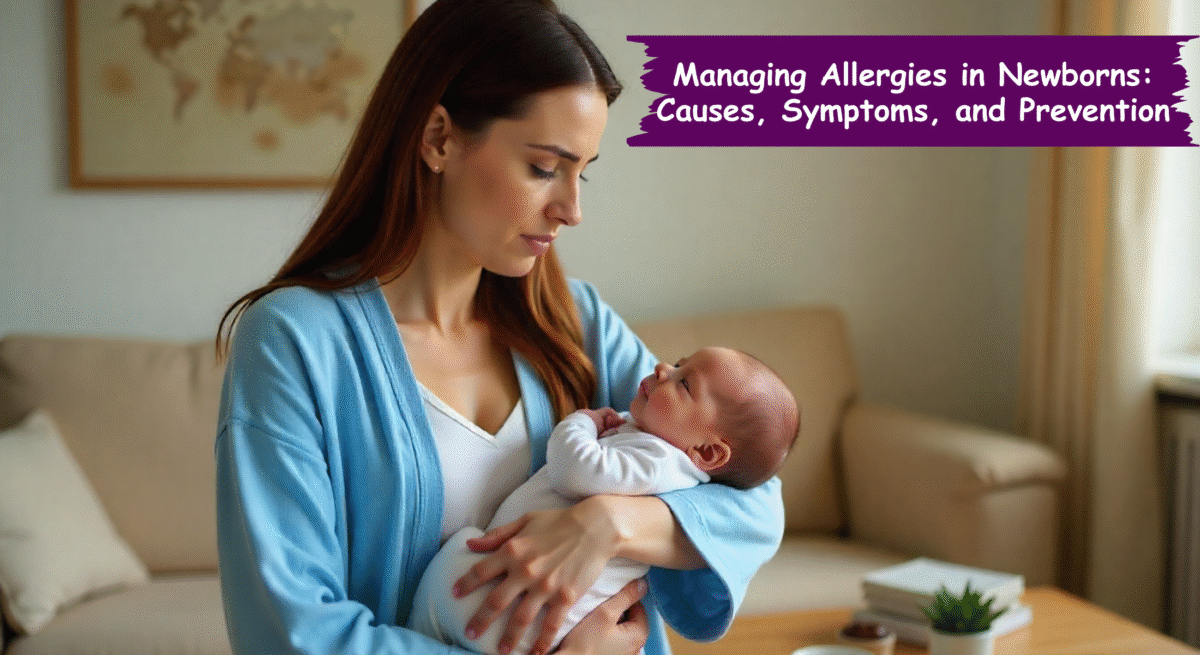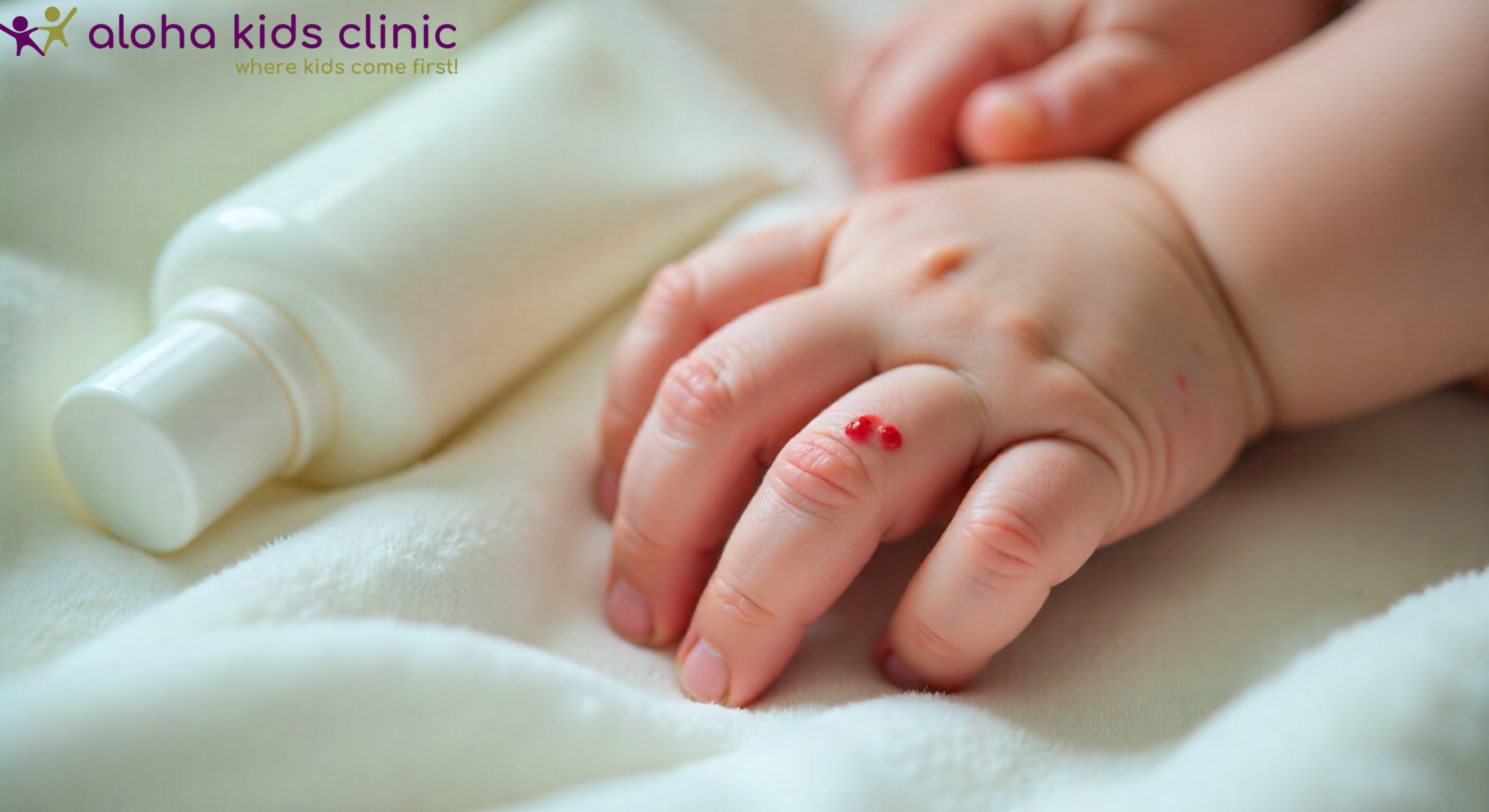Managing Allergies in Newborns: Causes, Symptoms, and Prevention

Babies are prone to allergies because of their fragile immune systems. Understanding the reasons, identifying the symptoms, and taking preventative action as a parent will help keep your child safe and comfortable. Many new parents worry about allergies, which can show up in different ways and cause a lot of discomfort for both the baby and the caregiver.
Causes of Allergies in Newborns
Allergies in newborns occur when their immune system overreacts to certain substances, known as allergens. Common allergies include:
Food allergens: Dairy (cow’s milk, paneer, ghee, yogurt), eggs, nuts, and soy can cause allergy triggers in some babies, especially if introduced too early. Breast milk is the best food for babies, but if a mother eats foods like peanuts, dairy, or shellfish, small traces can pass to the baby.
Environmental allergens:Pet hair, pollen (seasonal), and mold can also cause allergies.
Skin allergens: Certain soaps, detergents, and fabrics may irritate sensitive baby skin.
Insect allergens: Bites from mosquitoes or contact with insect droppings can lead to mild or severe allergic reactions.

Symptoms or Signs of Allergies in Newborns
Recognizing allergy symptoms early can help in managing them effectively. Some common signs include:
-
Skin rashes, eczema, or hives
-
Excessive sneezing or nasal congestion
-
Wheezing, coughing, or difficulty breathing
-
Vomiting, diarrhea, or colic-like symptoms
-
Swelling of the face, lips, or tongue
If you notice any of these allergy symptoms, especially severe ones, consult a pediatrician immediately.
Preventing Allergies in Newborns
While not all allergies can be prevented, certain steps can reduce the risk:
Breastfeeding: Exclusive breastfeeding for the first six months can strengthen a baby’s immune system and lower the risk of allergies.
Introducing new taste carefully: When starting solid foods, introduce one at a time to monitor for allergic reactions.
Maintaining a clean environment: Regularly clean bedding, avoid strong detergents, and limit exposure to dust and pet hair.
Using hypoallergenic products: Choose baby-friendly soaps, shampoos, and detergents to prevent skin irritations.
Consulting a doctor: If there’s a family history of allergies, discuss with the pediatrician for allergy prevention measures.
When to Seek Immediate Help
If your baby has a severe allergic reaction, get medical help right away. Signs of a serious reaction include:
-
Swelling of the face, lips, or throat(a sign of severe allergic reaction)
-
Trouble breathing
-
Extreme tiredness or weakness
